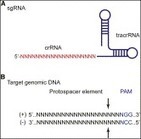A Ludwig Cancer Research study has discovered that the immune system's surveillance of cancer can itself induce metabolic adaptations in the cells of early-stage tumors that simultaneously promote their growth and equip them to suppress lethal immune responses.
Research and publish the best content.
Get Started for FREE
Sign up with Facebook Sign up with X
I don't have a Facebook or a X account
Already have an account: Login
 Your new post is loading... Your new post is loading...
 Your new post is loading... Your new post is loading...
|
|














The immune system can induce metabolic adaptations in tumor cells at an early stage that promote their growth. Researchers identify three proteins that orchestrate this effect: IFNγ, STAT3 and c-Myc. The researchers show that IFNγ activates, in addition to the STAT1-mediated signaling pathway, the STAT3-mediated pathway. This pathway alters the genome expression patterns of the cancer cell by inducing epigenetic changes. It also hyperactivates c-Myc, which is overexpressed in many cancers. The researchers show that genes activated by c-Myc not only shape cancer metabolism, they also compromise T-cell infiltration into tumors and disable their attack on cancer cells. Thus, STAT1- and STAT3-mediated signaling pathways appear to synergize to confer on emerging tumors the ability to avoid immune clearance, resulting in the immunometabolic editing that helps fuel their evolution into full-blown malignancy. The researchers also used CRISPR to screen 2,078 metabolic enzymes in mouse tumors and identified 40 metabolic genes controlled by c-Myc that play an important role in helping cancer cells evade immune surveillance and attack. These enzymes are therefore prime candidates for drug targeting.